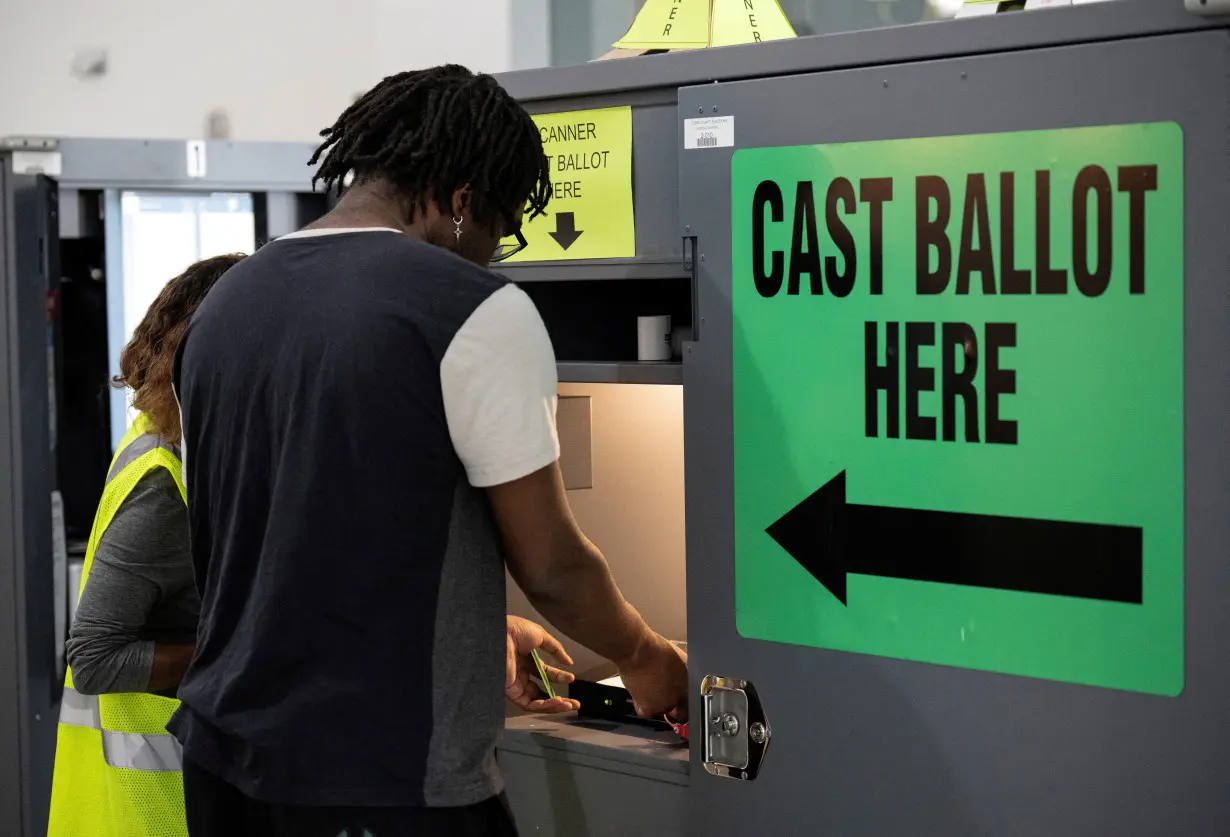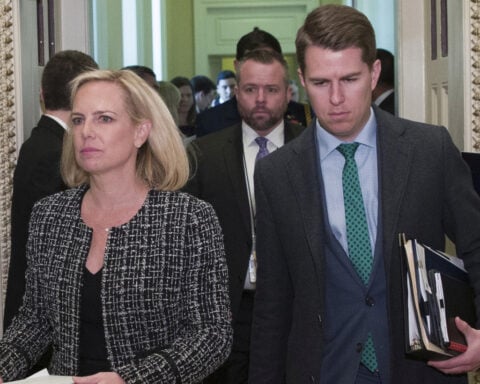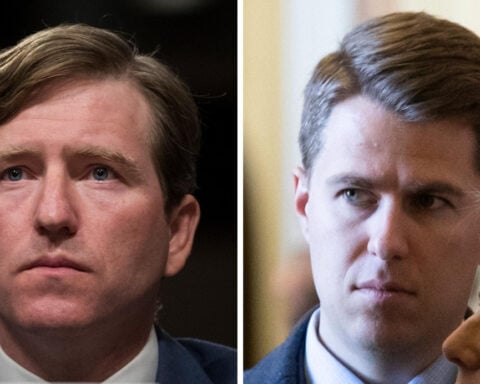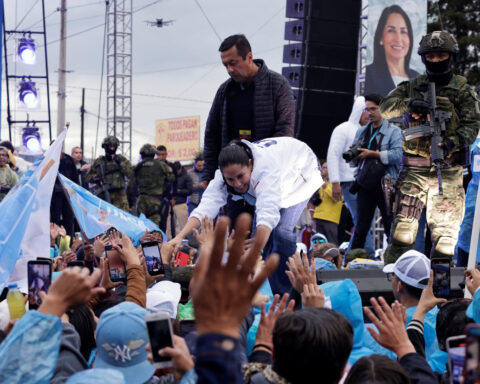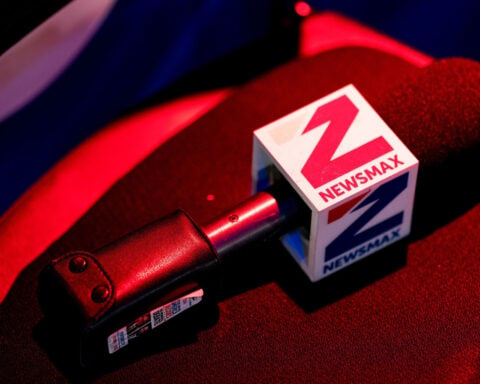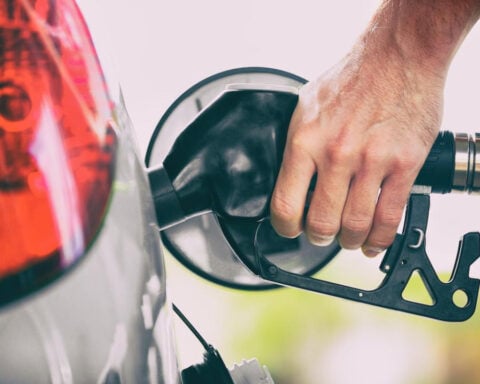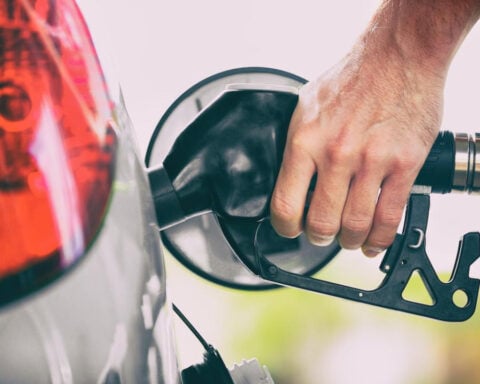By Julia Harte and Tim Reid
(Reuters) - A year before voters choose the next U.S. president, groups of all stripes are already working to prepare for what they see as the greatest threat to the 2024 election: attacks on voters' rights for some, potential electoral fraud for others.
A coalition of non-partisan voter advocacy groups is planning to recruit its biggest-ever "election protection" pool of volunteers – more than 20,000 – to answer voters' questions, help poll workers handle problems and bring in legal assistance where needed.
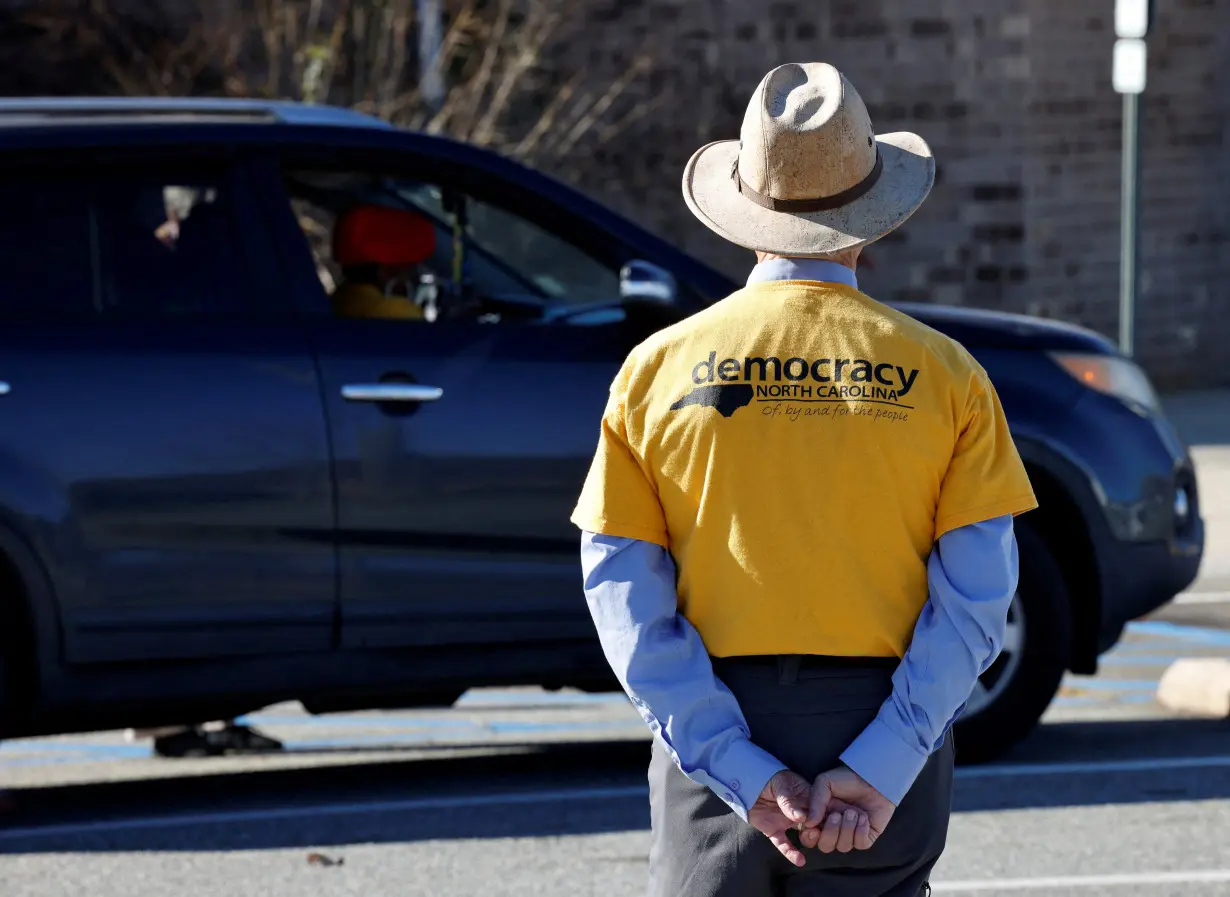
Meanwhile, the Republican National Committee said it aims to train tens of thousands of poll watchers who can be deployed in 2024, and has launched a full-time "Election Integrity Department" that has hired more than 15 staff across the United States.
The committee said these steps would be independent of the campaign of former President Donald Trump, the frontrunner for the party's nomination to run against Democratic President Joe Biden.
Claims of widespread voter fraud in the 2020 election in which Biden defeated Trump have been rejected by multiple courts, state governments and members of Trump's own former administration. Existing safeguards make voter fraud exceedingly rare, according to election analysts.
The recruitment drives are underway, however, with election officials bracing for clashes like those that marred voting and vote counting in 2020, when Trump falsely blamed election fraud for his loss to Biden.
TRUMP REPEATS BASELESS CLAIMS
Trump continues to repeat the baseless claims that the last presidential election was stolen from him. At a rally last weekend, Trump called on his supporters to "guard the polls" next year in Atlanta, Detroit and Philadelphia, three heavily Democratic U.S. cities with large Black populations.
LaTosha Brown, a co-founder of Black Voters Matter, said Trump's singling out of those cities in battleground states was consistent with racially divisive rhetoric he has previously used to rally his base.
"The significance in these particular places is because they have sizable Black populations that make a major difference and can influence the outcome of elections," Brown said.
Senior Trump aide Jason Miller said it was "ridiculous" to suggest Trump's citing of Detroit, Philadelphia and Atlanta had anything to do with race.
"Pennsylvania, Michigan and Georgia are arguably the top three states where election integrity experts had the most concerns about 2020. Philadelphia, Detroit and Atlanta are the largest Democrat-run cities in each state," said Miller.
None of the those cities experienced widespread voter fraud in that election.
NAACP President Derrick Johnson said Trump had "polluted our system of elections and our confidence in it in a way that we have not seen since the 1950s, before the Voting Rights Act." The 1965 law helped enfranchise Black citizens after decades of racist laws that were enacted in Southern states to legalize racial segregation after the U.S. Civil War.
Johnson called Trump's comments on Saturday "dangerous" and reminiscent of the then-president's unfounded claims that inspired the Jan. 6, 2021 attack on the U.S. Capitol by supporters of his.
A U.S. appeals court on Friday rejected Trump's claim that he was immune from being sued over those statements, ruling that he must face civil lawsuits by Democratic lawmakers and Capitol police officers that accuse him of personally inciting the Jan. 6 violence.
PREPARING FOR DISRUPTORS
Far from intimidating poll workers, Trump's recent comments will "probably drive turnout to its highest" in Detroit, said city clerk Janice Winfrey.
During the 2020 election, she recalled, crowds of vote challengers banged on the windows of vote-counting centers, screaming "stop the count."
To prevent such scenes in 2024, Detroit poll watchers will be screened electronically, cordoned farther away from workers and monitored by more police, said Winfrey, who began carrying a gun after a stranger came to her home in November 2020 to accuse her of rigging the election against Trump.
"We will continue to be unmoved by foolishness," she said. "It's not a secret that the demographics of those cities are Black, and in his ignorance, he thinks that we can be easily intimidated by folk that don't necessarily look like us."
Ahead of the election, officials can avoid some of the chaos that fraud-chasing poll watchers created in 2020 by setting clear rules and educating the public about the way tabulation processes, such as signature verification, normally work, said Suzanne Almeida, who leads political violence prevention and response work at the non-partisan Common Cause.
States have different requirements for who can monitor polling places. In Georgia, where poll watchers can be from any part of the country, voter advocates have urged local leaders to raise fines for election-related misbehavior, boost security at vote-counting centers and give election officials protected-class status, similar to judges, that better secures their personal information.
Patrise Perkins-Hooker, the elections board chair in Fulton County, Georgia, which includes most of Atlanta, said vote counting would occur at a new place in 2024 that also houses a law enforcement office.
"But in light of all of the confirmations by the courts that people participating in such disruptive behavior will be held accountable, we hope we won't experience any problems next year," Perkins-Hooker said.
(Reporting by Julia Harte and Tim Reid; Additional reporting by Jarrett Renshaw; Editing by Colleen Jenkins and Grant McCool)

 Trump has begun another trade war. Here's a timeline of how we got here
Trump has begun another trade war. Here's a timeline of how we got here
 Canada's leader laments lost friendship with US in town that sheltered stranded Americans after 9/11
Canada's leader laments lost friendship with US in town that sheltered stranded Americans after 9/11
 Chinese EV giant BYD's fourth-quarter profit leaps 73%
Chinese EV giant BYD's fourth-quarter profit leaps 73%
 You're an American in another land? Prepare to talk about the why and how of Trump 2.0
You're an American in another land? Prepare to talk about the why and how of Trump 2.0
 Chalk talk: Star power, top teams and No. 5 seeds headline the women's March Madness Sweet 16
Chalk talk: Star power, top teams and No. 5 seeds headline the women's March Madness Sweet 16
 Purdue returns to Sweet 16 with 76-62 win over McNeese in March Madness
Purdue returns to Sweet 16 with 76-62 win over McNeese in March Madness
